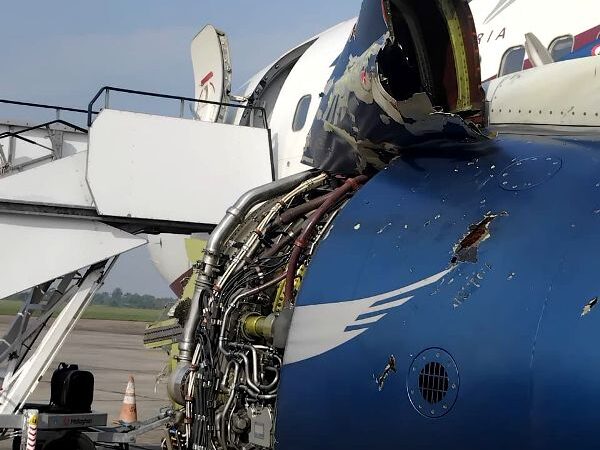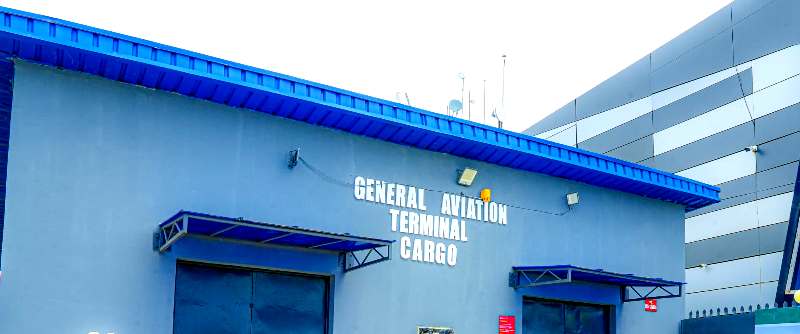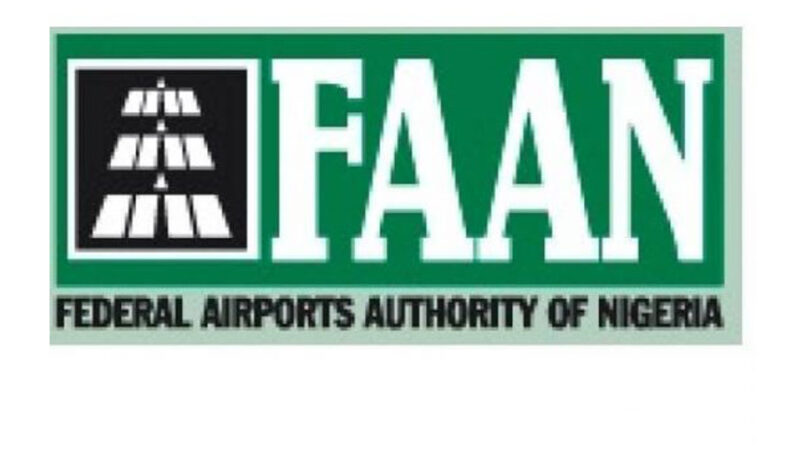Nigeria’s Aviation Security Stakeholders Discuss Strategies For Achieving Safer Skies

There were extensive discussions in Lagos, Nigeria yesterday by stakeholders in Nigeria’s Aviation Security on a theme, “The Fundamentality of Security In Achieving The Safe Skies Goal.”
Delivering his keynote speech at the High-Level Aviation Security Stakeholders’ Symposium, Chief Host of the event, the Director General of Nigeria Civil Aviation Authority (NCAA), Capt. Chris Najomo said the connectivity opportunities and commerce, cultural exchange and economic development enablement that the aviation Industry presents, come with “increasingly-evolving threats of cyber-attacks, terrorism, insider-threats, unmanned aerial systems; not forgetting the intricate dilemmas of cargo, passenger and airport security. The threat environment is constantly changing and any attack on civil aviation through any one of these means can be countered by the implementation of effective aviation security counter measures. These measures can be effective only if the people responsible for protecting the industry carry out their tasks effectively and efficiently. This, inherently, borders on competency. This is why, as an aviator myself, I share in the doctrine of training, training and more training.”
Based on this, Najomo emphasized the need for vigilance, collaboration involving information sharing and coordination among all stakeholders to prevent and respond to security threats, leveraging advanced technologies like biometrics, Artificial Intelligence, and cyber-security measures to enhance security and efficiency, adhering to international standards and national regulations to ensure consistency and effectiveness of implemented security measures.
“These attacks against civil aviation can be countered by the Implementation of effective aviation security measures and procedures, and of course, by competent personnel,” he said adding that “achieving security is not a destination. Rather, it is a continuous painstaking journey requiring the firm commitment to responsibility of every relevant stakeholder.”
At this event, the Office of the Director General, NCAA issued a circular, mandating implementation of the Basic STP123 AVSEC training and certification for all aviation security personnel in the industry. The circular, REF NO: NCAA/DAVSEC/HQ/OD/6/1/34 dated March 25, 2025 provided Guidelines On Implementation Cyber-security APPENDIX Y To The NCASP Of Aviation and “shall apply to all entities involved with, or responsible for the implementation of various aspects of this NCASP: Airport operators, Airspace Users (Airlines, General Aviation, UAS operators), Air Traffic Provider (NAMA), Aviation Services (NIMET, Ground Handling, Cargo etc.) and Aviation Allied Service Providers etc.”
“This directive shall become effective from 1st October, 2025” stated the circular (www.ncaa.gov.ng).
In his keynote address, the National Counter Terrorism Centre under the Office of the National Security Adviser (ONSA), Mr. Nuhu Ribadu, who was represented by Air Commodore Ahmad Madawaki declared that “the ONSA has directed the implementation of a one stop joint monitoring screening system to avert clumsiness and touting in aviation operations. Currently, the Office is also developing a security threat assessment framework for all airports and airstrips in Nigeria in a multi stakeholder set up. It is thus pertinent to continue to implore all operators in the industry to be security conscious and always share information among themselves to ensure the safety of both our airports and the air space.”
He said “the Nigerian government, especially the Office of the National Security Adviser is concerned about the security of our airspace and airports. The mandate of the Office is to coordinate the operations of relevant security agencies to ensure that the operation of the aviation sector is protected from acts of unlawful interferences. Security agencies are also required to collaborate and cooperate with all operators to ensure their duties are carried out in the most efficient and professional manner.”
“As we deliberate, let us bear in mind that security issues are multifaceted and in dealing with this, we must consider the forms and sources of threat,” he said, stating that “training and retraining of all staff must be prioritized. Tracking devices should be installed and maintained, while proper data collection and management must be put in place and monitored. Security services and drug law enforcement agents must also remain vigilant to ensure the safety of passengers, airports and our skies.”
In his presentation, the Managing Director/Chief Executive of Nigerian Airspace Management Agency (NAMA), Engr. Farouk Umar Ahmed represented at the event by NAMA’s Director of Legal Services and Company Secretary, Mrs. Isemiuhonmon Rita Egbadon, identified four major challenges that continue to inhibit the effectiveness of aviation security in Nigeria as lack of synergy and collaboration among security agencies involving absence of structured inter-agency communication channels, overlapping mandates, and fragmented incident response mechanisms at airports which all delay critical decision-making and hinders unified responses to security threats; inadequate investment in security infrastructure and equipment resulting in obsolete screening systems, inadequate perimeter fencing, poor surveillance coverage and limited access control systems that expose key installations to avoidable threats; capacity gaps and poor motivation among aviation security personnel featuring insufficient training, poor remuneration, and limited opportunities for career development and finally, recruitment of unqualified personnel into sensitive security roles involving appointments that bypass necessary screening, certification and background verification processes required by ICAO Annex 17 and national civil aviation regulations.
As solution, Ahmed recommended the creation of a National Aviation Security Coordination Framework, anchored by FAAN and regularly inspected or audited by NCAA, to drive seamless collaboration among all security stakeholders. “This task force should convene regularly to share intelligence, develop joint action plans, conduct simulations, and issue coordinated advisories,” he said.
He also recommended adoption of a comprehensive capacity-building and incentive programme, enforcement of merit-based recruitment and certification standards, prioritization of investment in security infrastructure both federal and state authorities, in partnership with the private sector saying they “must invest in modern aviation security equipment. This includes biometric access systems, smart surveillance solutions, integrated command centres, and advanced threat detection tools. Funding mechanisms should be developed to ensure sustained upgrades and maintenance.”
Speaking on Passenger Screening And Behvioural Protocols, Dr. Emeka Okengwu stressed the need to address the challenges of technology, impunity and justice. He called for creation of a log-in system in the industry that makes it possible for all stakeholders to always make on-time reportage of security threats. He also emphasized that in dealing with impunity of unruly passengers and bad behavior of airport users, personnel on ground to carry out their jobs should be empowered by the system.
In his presentation, the Lead Keynote Speaker at the event and former Director General of NCAA, who was during the event honoured with an award of “King of Aviation” recalled the incident of Mr. Umar Farouk Abdul-Mutallab, a 23-year-old Nigerian, who boarded KLM flight out of Lagos Nigeria on December 24, 2009, enroute Detroit, Michigan, USA via Amsterdam, with the intention of bombing the airplane.
He said the incident brought a new dimension to the global aviation security measures and analyzed the categories of threat to civil aviation vis-à-vis Persons making illegal entry, document fraud, human trafficking, suspected terrorists; Weapons like arms, ammunitions, explosives; Drugs trafficking, Illicit drugs and Goods –Contraband like cash, hazardous materials and stolen items.
They also include Implosive explosive devices and homemade explosives; Use of small arms for attacks or targeting a plane or use of plane as a weapon; IEDs, Small arms, Person-borne IED, vehicle-borne IED attacks; landside attacks and Chemical or Insider/on-passenger threat.
He said there are also emerging threats like cyber-attacks, biological and radiological threats, violent extremism and perimeter breaches, unruly behaviour and airport disruptions, communication of false information, Man Portable Air Defense, (MANPADs) and Conflict zones risks.
“It is worth to note that the latest concern in the industry is cybersecurity; with increasing reliance on digital platform, cyber security threats are becoming a major concern, requiring proactive cybersecurity measures,” he said, highlighting the advantages that terrorists have as Time To Plan, including training, Money, enough of which they have and readiness to die on their suicide missions.
According to him, one of the worst threat to aviation security is Insider Threat as people have different religious beliefs, political differences, money problems and outright greed. “In our own particular environment, joblessness is now a major issue. Unfortunately, those who are suppose to protect people compromise security,” he said suggesting as solutions, constant profiling, regular background checks, adequate remuneration and timely payment of salary, training and capacity building as well as timely sharing of Sensitive Security Information (SSI).
“In conclusion, aviation security is the responsibility of everyone and we must prioritize continuous training and awareness in oversight and implementation agencies,” said Demuren.
The permanent Secretary, Federal Ministry of Aviation & Aerospace Development, Dr. Ibrahim Abubakar Kana while delivering his opening remarks earlier, stressed the importance of synergy and pro-activeness by aviation agencies and security personnel in achieving safer skies in the industry.
SEE MORE PHOTOS









